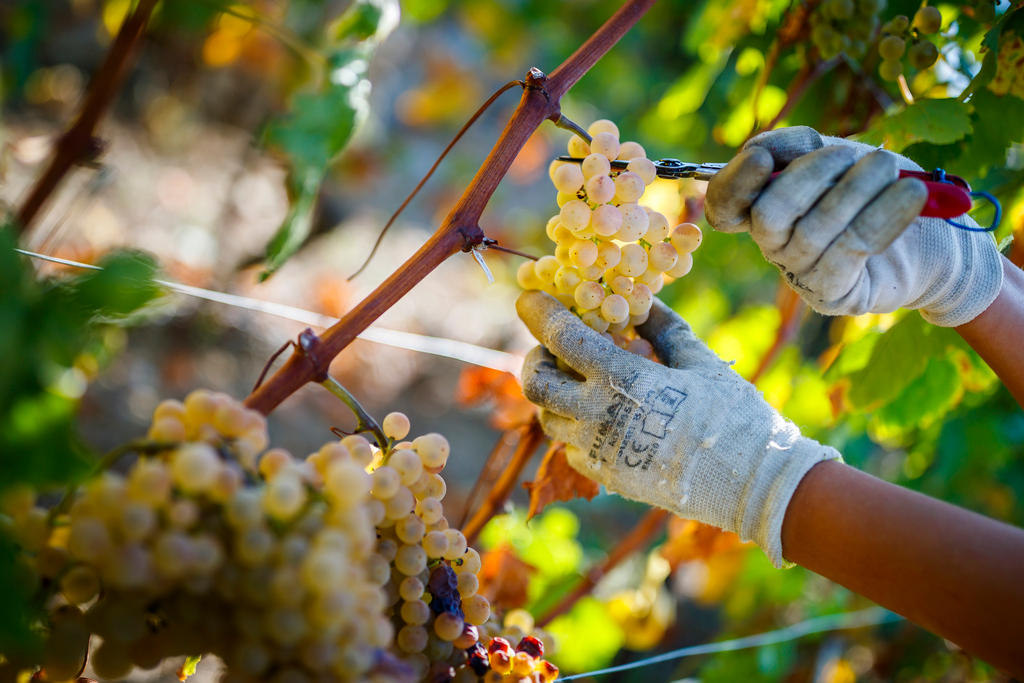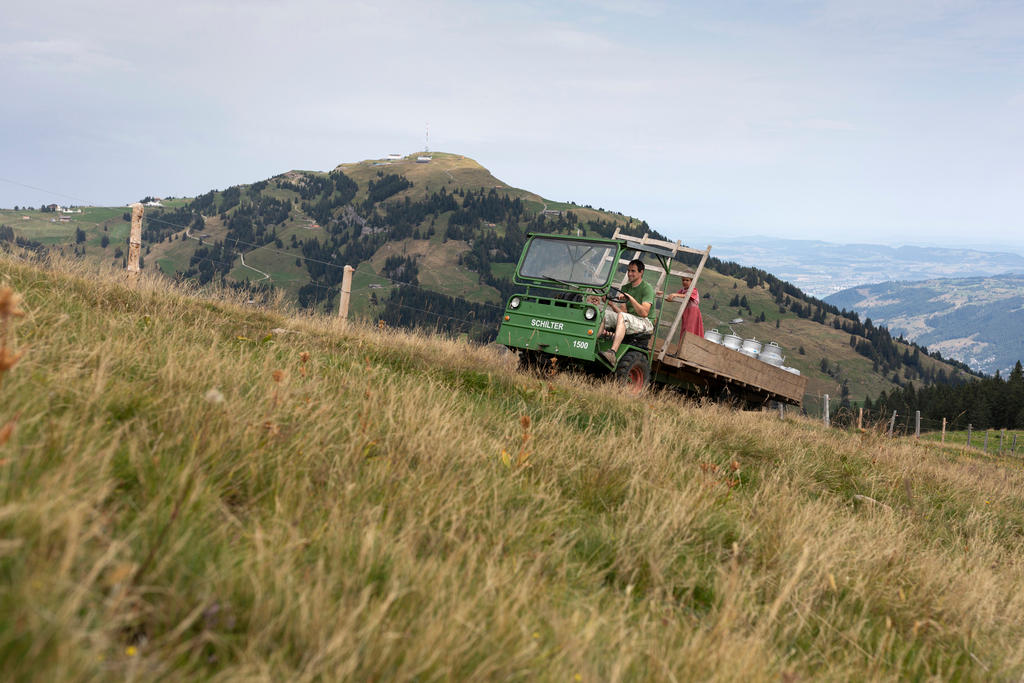
Warm and dry 2018 good for wine but not cows

An exceptionally warm and dry spring and summer has meant a good year for Swiss wine growers but a bad one for dairy and beef farmers who had to rely on fodder imports.
This year’s spring was the fourth warmest and summer the third warmest since measurements began in 1864, according to Swiss meteorological agency MeteoSwiss. It also rained much less in 2018 than in recent years on average.
As a result of the warm and dry conditions, cattle farmers faced shortages of fodder, which had to be compensated by imports. According to a report by Swiss Farmers’ Union, imports amounted to 215,000 tons over the first ten months of the year. The impact could continue into 2019.
“Some farmers currently still have fodder stocks but may run out at the beginning of the year. They may be forced to buy fodder or sell livestock,” said Francis Egger of the Swiss Farmers’ Union.
Egger warned that a second year of drought in 2019 would be “catastrophic”, with farmers’ fodder reserves depleted.
Dry conditions also made it tough for vegetable growers. A major challenge was sourcing enough water to irrigate their crops sufficiently, which led to an increase in production costs. The sugar beet harvest was the lowest since 2006. As a result, Swiss sugar production will not cover demand making imports necessary. Drought also had a detrimental impact on soybean and maize production, which declined by about 33% and 20% respectively.
Making hay
In contrast to the plight of cattle farmers, fruit growers had a successful year. Yields were above average for apples, pears, cherries, apricots and raspberries. Only the strawberry harvest recorded an 11% decrease compared to the last five years.
Winegrowers can also rejoice, as the 2018 vintage promises to be “exceptional”, said the Farmers’ Union. The dry and sunny weather helped restrict diseases affecting the vines.

More
Swiss farmers told to adapt to the heat or go bust

In compliance with the JTI standards
More: SWI swissinfo.ch certified by the Journalism Trust Initiative



























You can find an overview of ongoing debates with our journalists here . Please join us!
If you want to start a conversation about a topic raised in this article or want to report factual errors, email us at english@swissinfo.ch.